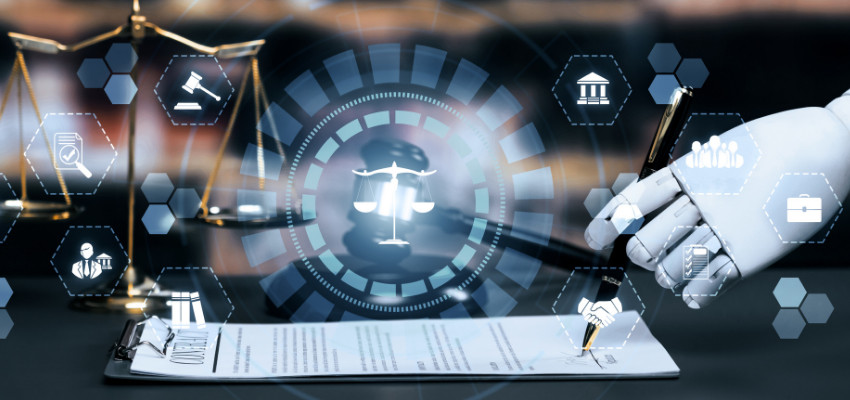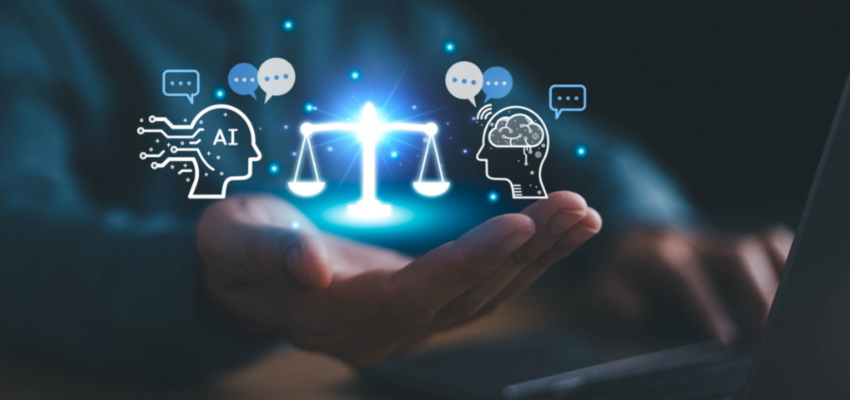Show:
How AI is Revolutionizing the Legal Sector
The legal industry, traditionally rooted in time-honored practices and meticulous human judgment, is undergoing a substantial transformation due to advancements in artificial intelligence (AI).
Far from replacing legal professionals, AI is enhancing their capabilities, automating routine tasks, and offering new insights, all of which allow lawyers to focus more on strategic, high-value work. Here’s a closer look at how AI is revolutionizing the legal sector.

1. Automation of Routine Tasks
One of the most significant impacts of AI in the legal sector is the automation of time-consuming, repetitive tasks. Legal research, document review, and contract analysis, traditionally labor-intensive activities, can now be handled efficiently by AI-powered tools. These tools use natural language processing (NLP) and machine learning algorithms to sift through large volumes of legal documents, identify relevant case law, and extract critical information with remarkable speed and accuracy.
For instance, platforms like Kira Systems and eBrevia utilize AI to assist in contract review, reducing the time needed for document processing by up to 60-80%. This not only saves lawyers hours of manual work but also minimizes errors and inconsistencies, ensuring higher accuracy.
2. Enhanced Legal Research and Analysis
AI-powered research tools have transformed how lawyers approach case law and legal research. Platforms like LexisNexis and Westlaw have integrated AI into their systems, enabling lawyers to quickly locate relevant cases, statutes, and legal precedents. Some tools go further by offering predictive analysis capabilities, suggesting case outcomes based on historical data and patterns.
This predictive element allows attorneys to gauge their chances of success in court, craft stronger arguments, and make data-driven decisions that benefit their clients. Moreover, AI’s analytical capabilities provide a more comprehensive understanding of complex legal matters, giving legal teams a distinct advantage.
3. Contract Drafting and Management
Contract drafting, a time-intensive task that requires utmost precision in many types of law such as employment law, is also benefiting from AI-driven solutions. Tools like Luminance and LawGeex leverage AI to draft, review, and manage contracts, identifying risks, inconsistencies, and compliance issues within the documents.
AI can standardize language, highlight ambiguities, and suggest revisions, ultimately enhancing the quality of contracts and reducing the likelihood of disputes. This is especially useful for large corporations and legal departments that handle thousands of contracts annually, as it ensures both efficiency and accuracy in managing contractual obligations.

4. Virtual Legal Assistants
Virtual legal assistants are becoming more common in law firms, providing 24/7 support for client interactions, basic legal inquiries, and case management. These AI-powered assistants can handle routine questions, schedule appointments, and even assist in initial client consultations by gathering relevant information.
By streamlining client interactions, virtual legal assistants allow lawyers to dedicate more time to complex cases, improving client satisfaction and operational efficiency. Additionally, the use of chatbots and automated response systems helps smaller firms scale their operations without significantly increasing costs.
5. Data-Driven Decision Making
AI’s ability to analyze vast amounts of data in real-time is a game-changer for the legal sector. Litigation analytics, for example, enables lawyers to understand how certain judges have ruled in similar cases or how opposing counsel tends to approach specific legal issues.
This information allows legal professionals to make data-driven decisions and develop more effective strategies. Companies like Premonition and ROSS Intelligence are leading the way in litigation analytics, providing insights that can impact case outcomes and overall strategy.
6. Ethical and Regulatory Considerations
With AI’s integration, the legal sector must address the ethical and regulatory concerns associated with using automated decision-making tools. Ensuring data privacy, maintaining transparency in AI-driven recommendations, and addressing potential biases in AI algorithms are essential to building trust.
Regulatory bodies and firms are working together to establish frameworks that govern AI’s role in legal practice, ensuring these technologies uphold legal standards and respect client confidentiality.
Conclusion
AI is revolutionizing the legal sector, reshaping how law firms operate and enhancing the role of legal professionals. By automating routine tasks, improving research capabilities, aiding contract management, and facilitating data-driven insights, AI empowers lawyers to work smarter, not harder.
As the legal industry embraces AI, professionals can shift their focus from mundane tasks to strategic, high-impact work, ultimately delivering better outcomes for clients. While challenges remain in managing AI’s ethical and regulatory implications, the legal sector is poised to benefit immensely from this technological evolution, unlocking new levels of efficiency and capability.

 Return to Previous Page
Return to Previous Page








